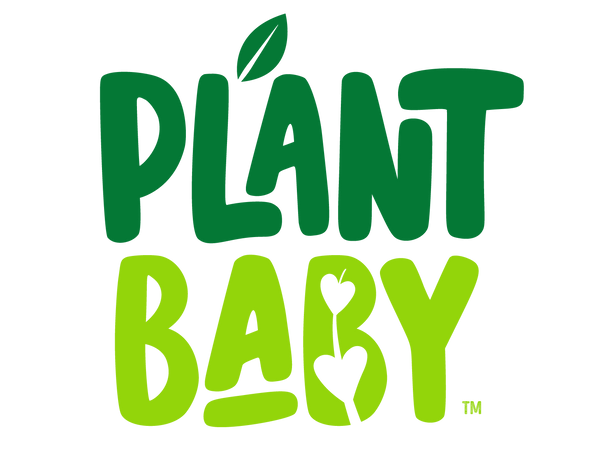If you're looking for information about DHA for toddlers, you've come to the right place!
In this blog post, we'll explore the many benefits of DHA, its sources, and why it's essential for growing children.
What Is DHA?
DHA, or docosahexaenoic acid, is a type of essential omega-3 fatty acid that plays a critical role in your child's health. It is found in high concentrations in the brain and eyes and is critical for the proper functioning these organs.
Is Omega-3 Fatty Acid And DHA The Same?
Omega-3 fatty acids and DHA are related, but they are not the same thing. Omega-3 fatty acids are a group of essential fatty acids that play a crucial role in maintaining good health. They cannot be produced by the body and must be obtained through dietary sources or supplements.
DHA is one of the three main types of omega-3 fatty acids, along with EPA (Eicosapentaenoic Acid) and ALA (Alpha-Linolenic Acid). DHA is particularly important for brain and eye health, as it is the most abundant omega-3 fatty acid in these tissues.
While both omega-3 fatty acids and DHA are important for your toddler, they differ in their specific health benefits and food sources. Omega-3 fatty acids, as a group, are important for heart health, joint health, and reducing inflammation. On the other hand, DHA is more specific to brain and eye development; that's why it's essential for pregnant women, babies and toddlers.
Health Benefits of DHA
DHA has been linked to several health benefits. Here are the most relevant ones:
Brain Health: DHA is the most abundant omega-3 fatty acid in the brain and plays a crucial role in brain development and function. It has been shown to improve cognitive function and memory and reduce the risk of depression and anxiety.

Eye Health: DHA is key for maintaining eye health, as it makes up a large portion of the retina. It has been shown to protect against age-related macular degeneration, a leading cause of blindness in the elderly.
Heart Health: DHA can help lower the risk of heart disease by reducing inflammation, improving blood lipid levels, and reducing blood pressure.
Infant Development: DHA is necessary for the development of a baby's brain, eyes, and nervous system. Pregnant women and nursing mothers are advised to consume sufficient amounts of DHA for their and their child's health.

May improve symptoms of Attention deficit hyperactivity disorder (ADHD): Some studies have shown that children taking a combined DHA and EPA supplements had improvements in their symptoms of ADHD (hyperactivity, impulsiveness, and difficulty focusing)
Could reduce asthma: Combined DHA and EPA daily supplementation may decrease asthma symptoms in children.
Food Sources of DHA
The best sources of DHA are animals. Plant-based sources of DHA are not as effective, but they can still provide some benefits.
Fish is by far the most common source of DHA. Oily fish such as salmon, mackerel, and tuna are excellent sources of omega-3s and DHA.

Plant sources of DHA are not as common, but they do exist. For example, algae is a great source, and it's often used as a supplement. Other plant sources of DHA include chia seeds, flax seeds, hemp seeds, and walnuts.
Vegetarians and vegans usually have lower levels of DHA than omnivores and would likely benefit from supplementation.
How Much DHA Does My Toddler Need?
The World Health Organization recommends 100-150 mg of DHA daily for kids between 2-4 years old.
These amounts can easily be met for children who eat fish, seafood and eggs.
However, a DHA supplement is recommended for plant-based, vegetarian, and vegan kids. They can also get some DHA from fortified food.
DHA Supplements
Almost all infant formulas and some toddler formulas, milk varieties and other foods are fortified with DHA.
In addition to dietary sources, it's possible to get DHA from supplements. These supplements are usually made from fish oil, algae, or krill oil. They are a convenient way to get what your toddler needs without eating a lot of fish.
Fish oil supplements are the most widely available, but some may prefer krill oil or algae-based supplements as they are sourced from sustainable and environmentally friendly sources.
When choosing a DHA supplement, it is important to select a high-quality product independently tested for purity and potency. Look for supplements that have been third-party tested and have received a seal of approval from organizations such as the International Fish Oil Standards (IFOS) or the Council for Responsible Nutrition (CRN).
In conclusion, DHA is an essential omega-3 fatty acid that plays an important role in your child's health. It offers many benefits, from improved brain development to better heart health. Whether you get your DHA from dietary sources, supplements, or both, you should ensure your child is getting enough of this healthy fat.
Carmen Bautista
Dietitian & Toddler Mom
Bachelor's Degree in Nutrition
Master's Degree in Food & Dietetics
Health Coach Certification

